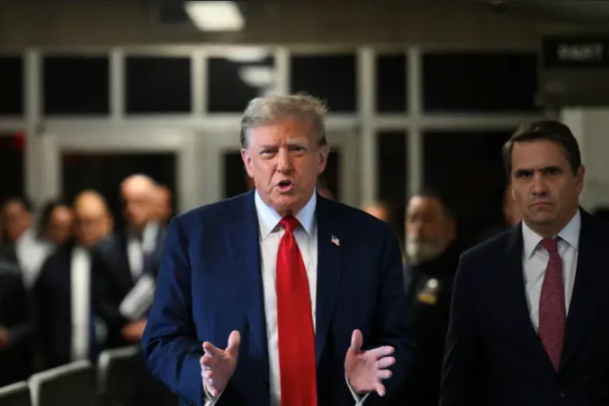
Yesterday’s closing arguments centered on whether Trump knowingly engaged in illegal activities and relied heavily on the credibility of Michael Cohen’s testimony. Here are key takeaways from the marathon day of closing arguments.
1. Did Trump Order Fake Invoices and Records, or Did Michael Cohen Create Them?
Defense attorney Blanche argued that Cohen, not Trump, created the 11 invoices for $35,000 each, intended to reimburse Cohen for paying hush money to Stormy Daniels. Blanche stated, “Trump had no part in creating the invoices,” which were marked as “legal expenses” by Trump Organization staff using their multi-data system dropdown menu.
2. Did Trump Willfully Violate Federal Campaign Finance Laws?
Blanche contended that Trump could not have conspired to influence the 2016 election unlawfully since he would need to have known that he was using “unlawful means” to influence the election. Blanche argued there was no evidence Trump knew the $130,000 payment to Daniels was an illegal campaign contribution that needed to be covered up.
3. The Case Rests on Cohen, a Proven Liar
Blanche attacked Cohen’s credibility, labeling him the “Gloat” or “greatest liar of all time.” He noted Cohen’s history of lying to Congress, federal judges, and the US justice department during this trial, making his testimony unreliable. Blanche suggested Cohen’s motivation was personal and financial gain, arguing that Cohen had an axe to grind against Trump.
4. Trump Didn’t Create the Invoices but ‘Caused’ Them to Be Made
Lead prosecutor Joshua Steinglass argued that under New York state law, it only needed to be proven that Trump helped “cause” Cohen or others to create false records. Steinglass suggested that Cohen was executing an illicit repayment scheme devised by Trump.
5. Trump’s Unlawful Acts Were to Pay to Kill Negative Stories
Steinglass asserted that when money changed hands to benefit Trump’s 2016 campaign, it constituted “unlawful means” by exceeding federal campaign contribution limits of $2,700 per person per election. Whether the jury will accept this argument is still uncertain, as Judge Juan Merchan has not yet ruled on the standards jurors must use.
6. Attacks on Cohen’s Credibility Were Not Consistent
Steinglass countered the defense’s attacks on Cohen, pointing out that Cohen lied to Congress at Trump’s request about interactions with Russia, gaining no benefit other than staying in Trump’s favor. Additionally, Steinglass highlighted the inconsistency in Blanche’s claims, noting that if Cohen stole $60,000 by overbilling Trump, it contradicts the defense’s argument that Cohen was merely reimbursed for hush money.
The post Key Takeaways from Trump Trial Closing Arguments first appeared on The Source.
The post Key Takeaways from Trump Trial Closing Arguments appeared first on The Source.
source https://thesource.com/2024/05/30/key-takeaways-from-trump-trial-closing-arguments/?utm_source=rss&utm_medium=rss&utm_campaign=key-takeaways-from-trump-trial-closing-arguments
Comments
Post a Comment